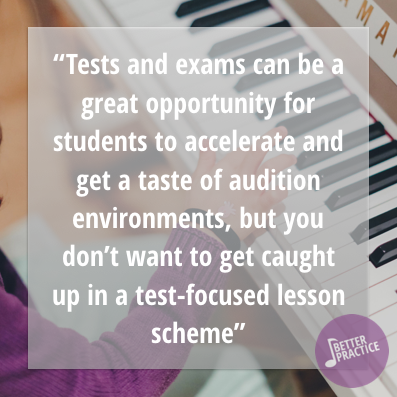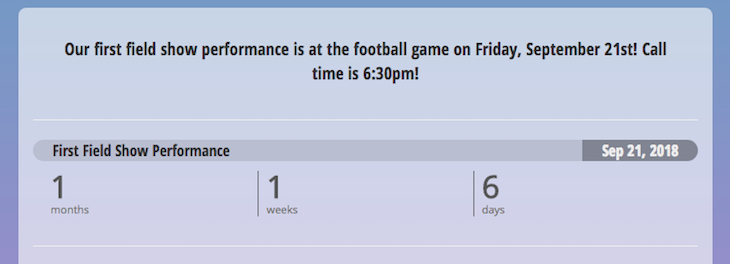It’s that time of year again! Exam prep season. Prepping students for exams – whether you use ABRSM (Royal Schools of Music), CM (Certificate of Merit), RCM (Royal Conservatory of Music), or anything else – can be a tough balance between stress and learning. Tests and exams can be a great opportunity for students to accelerate and get a taste of audition environments, but you don’t want to get caught up in a test-focused lesson scheme (where teachers are just pushing their students through one level after another). That’s no fun! Remember that exams cause more stress on some students than others, and it should ultimately be their choice whether they want to participate or not. Let them know that if they are aiming for a music conservatory or profession in music in the future, it may be a good experience and in their best interest to participate in these exams. Now, how do we prepare our students for these exams?
Sight reading
These exams often have a (dreaded) sight reading potion. This also tends to be the hardest to prepare for! There aren’t many methods that incorporate sight reading, so it’s usually up to the teacher to either find some good sight reading books or teach it in their own way. The general consensus for getting better at sight reading is practice – and lots of it! So this isn’t something to be starting last minute. Help your student create a habit of practicing sight reading every day. Even a 10-minute session before each practice will help, and it’s a good warmup to be reading and playing something not too intense. With Better Practice, you can pin an assignment for Sight Reading to the top of the practice list so it always gets done first!
Aural/Ear training
Same goes for this – practicing a little bit of ear training each day will help tons. As the test date approaches, your students will already be pros. Make sure you’re assigning and/or reminding the student to do sight reading and ear training regularly to gradually and consistently build skill.

The performance piece
This is it! The most prepare-able portion of the exam where students can show the judges exactly what they’re capable of. Unfortunately, this is often the most nerve-racking part (a performance in front of judges can be very intimidating!). So, performance practice is necessary. Tell students to perform their piece as often as possible – to friends, family, on the piano at the airport, etc. Perform the piece until the judge is “just another person”.
Theory
Ya either know it or ya don’t! Make sure your student understands the concepts (not just memorizing at a surface level) so that they don’t get tripped up on any tricky problems. Lots of practice is good, especially to see lots of different scenarios/keys/chords/etc. and to get used to them. Gaining speed on these tasks as they get used to them is also a good thing (as long as they are still careful to double check their answers), especially since most tests are timed. Discuss tactics for when they get stuck, like moving on and coming back to that problem later. Or if they absolutely must guess, how to make an educated guess.
Mock exam sessions
On the topic of performance practice, hold a couple mock exams with the student. Run through the whole experience – from walking into the room, greeting the judges, and setting up music to thanking the judges and exiting. Make it as realistic as possible. Dim the lights, pose as a judge, time all the sections accordingly if needed, etc. Have this session at least a couple times if the student is a first timer. It will help tremendously with getting used to the timing and flow of it all.
Once they get used to this, they can practice on their own using visualization.
Countdown
It helps to be reminded of the days left so no one ends up rushing. Use Better Practice’s countdown feature so students can see a running countdown to the exam date on their homepage.

This will help students plan out their practice for the coming weeks ahead and keep them aware of where they should be.
———
Exam prep can be a stressful ordeal. Be early, on-track, and stay productive with Better Practice’s tools. Break a leg!